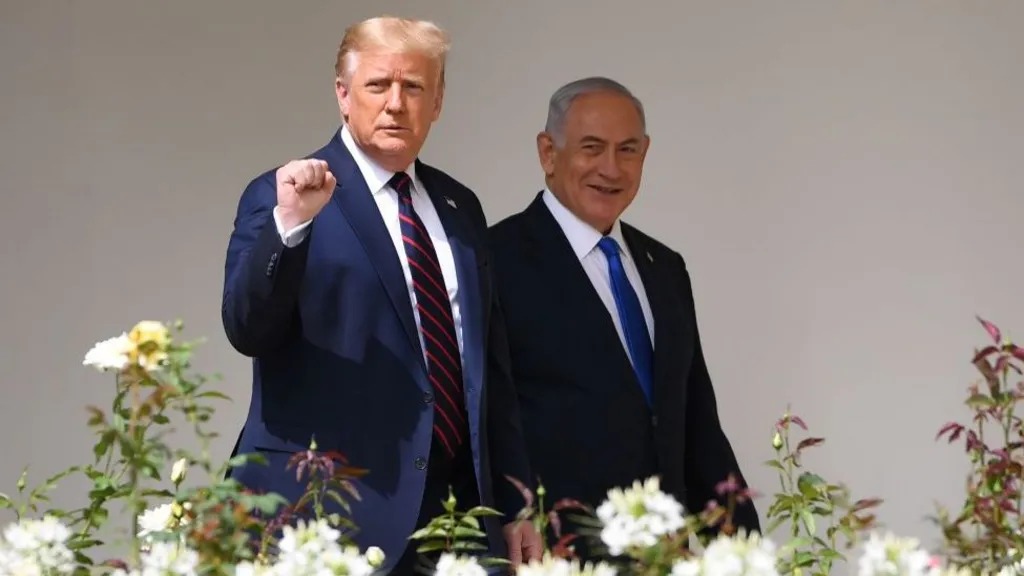
Trump’s Return Complicates Netanyahu’s Hopes for Full US Support
Trump’s return complicates Netanyahu’s hopes for unwavering US support, as Israeli leaders weigh the potential benefits and challenges. Prime Minister Benjamin Netanyahu quickly celebrated Trump’s victory, calling it a “historic comeback,” but some in Israel remain cautious. While Trump’s past support for Israel was strong, his unpredictable policies and views on Middle East issues—such as urging a swift end to the Gaza conflict—could bring new tensions.
In his first term, Trump won favor by recognizing Jerusalem as Israel’s capital, pulling out of the Iran nuclear deal, and brokering agreements between Israel and Arab nations. However, Trump’s return complicates Netanyahu’s hopes to pursue certain policies without interference, particularly regarding West Bank settlements, which Trump previously opposed.
Israel’s Balancing Act with Trump’s Policies
The complications for Netanyahu’s hopes are significant as he balances his coalition’s demands and potential US expectations. Trump’s aversion to prolonged military conflicts could push Netanyahu to end the Gaza operation sooner than some of his coalition partners might prefer. Former Israeli ambassador Michael Oren expressed appreciation for Trump’s past support but acknowledged the need for Israel to approach this new term with “clear-sighted” expectations.
For Netanyahu, the challenge lies in maintaining a strong relationship with Trump while addressing pressures from far-right Israeli factions that favor a hardline approach in the West Bank and Gaza.
External Link: Learn more on Trump’s impact on Israel at BBC
Internal Link: Explore Israel-US relations and Netanyahu’s policies at Kenkou Land
Palestinian Perspectives on Trump’s Return
For many Palestinians, Trump’s return complicates hopes for a peaceful resolution. In Gaza, residents like Ahmed, who lost family in the conflict, hope Trump’s strength could bring a swift end to the fighting. However, Palestinians in the West Bank are skeptical, fearing Trump’s approach will favor Israel. Sabri Saidam of Fatah called for “Trump 2.0,” expressing a desire for a version of Trump that addresses the root causes of conflict rather than focusing on military support for Israel.
While two-thirds of Israelis reportedly favor Trump’s return, there are concerns over his unpredictable methods, even among his supporters.
Conclusion: Uncertain Future for US-Israel Relations
Trump’s return complicates Netanyahu’s hopes for a seamless alliance, as the two leaders may diverge on approaches to Gaza, Iran, and settlement expansion. Netanyahu must carefully navigate this new era in US-Israel relations, balancing domestic political pressures with potential expectations from Trump’s administration.
This new phase in their alliance may lead to both cooperation and friction, reflecting the evolving dynamics in Middle East policy.





